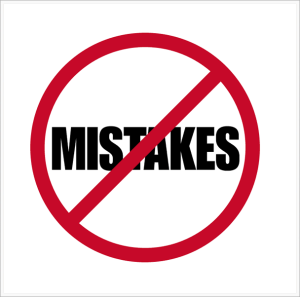— February 19, 2019

rawpixel / Pixabay
We know firsthand how intimidating it can be to dive into a brand strategy. It’s why many brands tend to back burner it for years (ourselves included). But, inevitably, you hit a point where it’s clear you can’t move forward without it. If you want longevity and lasting relationships with the people who need your product or service, you need to make intentional decisions for your brand.
That’s why a brand strategy is so crucial. It’s the secret to lasting success, benefitting you in all sorts of ways. A good brand strategy is the key to:
- Effective collaboration and communication
- Efficient use of resources
- Alignment in all departments
- True connection with the people you’re trying to reach
- Effective marketing
However, just because you have a brand strategy doesn’t mean you have a strong one. This is a common pitfall of even the most “together” brands. If your tactics aren’t working and you’re falling short of your goals, it’s usually due to a weak (or non-existent) strategy.
We’ve seen this over and over, which is why we’re here to help.
How to Avoid the Top 5 Brand Strategy Mistakes
Here, we’ve compiled the most common problems we see related to brand strategy, from simple oversights to major problems. If you’re revising your brand strategy or building one from scratch, avoid these and you’ll set yourself up for success from the start.
Mistake 1: Not Documenting Your Brand Strategy
This may seem obvious, but it is one of the more common mistakes we see brands make over and over. In fact, 21% of respondents in On Brand Magazine’s 2017 State of Branding Report said they have a “verbal only” strategy.
Even if you’ve put a lot of thought into it, if your brand strategy only exists in the ether, it is essentially useless. (Same goes for content strategy and, well, any strategy.) Without a hard-copy strategy, your team can’t work effectively, make the right decisions, or track their success.
If you haven’t gone through a proper branding strategy exercise (or don’t have it officially documented), try our step-by-step guide to get yours on paper.
Mistake 2: Combining Your Business and Brand Strategy
The words “brand strategy” and “business strategy” are sometimes used interchangeably yet incorrectly. These are two separate entities, and each serves a distinct purpose.
- Business strategy: The systematic plan to achieve your business goals and objectives (think organizational, operational, and financial things).
- Brand Strategy: The systematic plan to build a brand to support your business strategy and achieve your business goals.
In essence, your brand strategy is actually an extension of your business strategy. You should already have your business strategy identified before you dive into your brand strategy. To ensure the success of both, however, you need well-defined business goals and objectives, as everything you do is in service of those.
Mistake 3: Not Knowing Your Brand Heart
Before you’re a brand, you’re a business. And before you’re a business, you’re a group of people who gather together for a reason each day. Those reasons make up your core brand identity (aka brand heart). Specifically, they’re your:
- Purpose: Why do you exist?
- Vision: What future do you want to help create?
- Mission: How do you create that future?
- Values: Who are you? How do you work?
These elements don’t just give you a sense of identity; they are integral to how you do business, how you interact with people, and how you present yourself to the world. Thus, they’re what your brand strategy should be built on.
That said, many brands are functioning off decades-old mission statements or some broad vision that isn’t entirely applicable to who they are today and what they are trying to build. Before you do anything, you should take the time to identify and articulate these elements. That way you have clear principles to influence your decision-making at every stage.
Mistake 4: Creating Your Brand Strategy in a Vacuum
Completing a brand strategy takes a lot of work; it also takes a degree of knowledge. Thus, it’s common for brand or marketing teams to be leading the charge. However, your goal is to build a blueprint for your future, one that everyone can buy into.
When you are working with a small team, it’s easy for things to slip through the cracks (or never come up for consideration at all). When this happens, you build a strategy that is short-sighted or not applicable for the whole company.
Some of the more common symptoms and pitfalls of working in a vacuum include:
- Not getting approval at each stage, thus having to go back to square one.
- Not getting overall buy-in from higher ups, thus struggling to get the people, resources, or budget necessary to implement the brand strategy.
- Not talking to sales teams and customer service touch points, thus overlooking important brand communication gaps and opportunities.
- Not appropriately communicating the brand strategy, thus struggling to get participation from the whole team.
To avoid this, identify point people who can offer their department’s perspective and valuable feedback as you craft strategy.
Mistake 5: Using Inaccurate Personas
So much of brand building is about communication. It’s about connecting with people, conveying the necessary information, and building a relationship. Thus, a good brand strategy includes carefully crafted personas to help you get inside the mind of your ideal customers.
Unfortunately, when it comes to brand strategy it’s easy for brands to forget who they’re ultimately trying to reach. You become so self-reflective you forget to actually talk to the people whose needs you’re trying to fill.
This is especially true when it comes to crafting personas. These helpful tools should be created based on actual data and research (not your instincts or best guesses about what these people want, need, struggle with, and care about). But many brands forego those conversations, chats, and emails, thinking that they already “know” their customer. But if you’re making brand decisions based on flawed personas, you’re shooting yourself in the foot.
Business & Finance Articles on Business 2 Community
(98)








